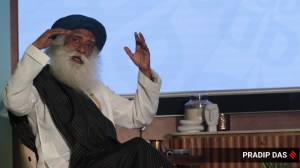Manila institute developing new variants of nutrition-rich rice
The International Rice Research Institute (IRRI) here is on the verge of a revolution in developing and propagating new rice varieties rich ...

The International Rice Research Institute (IRRI) here is on the verge of a revolution in developing and propagating new rice varieties rich in nutrition.
Briefing President A P J Abdul Kalam during his visit to the institute on Sunday, IRRI Director-General R S Zeigler said that the institute was developing more drought-tolerant varieties and the results are expected in the next couple of years. He said currently 10 per cent of the rice crop is destroyed due to lack of water.
These new developments would not only lead to a second green revolution, but would shall cater to the nutritional needs of half of world’s population whose staple food is rice. Asia alone accounts for 90 per cent of the total world rice production and consumption.
Scientists at the institute say that the breakthrough is a result of the recent sequencing of the rice genome which unravelled the genetic secrets of rice plans. This would, in turn, lead to developing of varieties rich in essential nutrients such as Vitamin A, iron and zinc which can transform the lives of millions of malnourished poor, particularly in countries like India.
Among the varieties under advanced stage of field experiment in some of the agricultural universities in India is called ‘Golden Rice’. The genetically engineered deep yellow-orange grain contains beta-carotene which is converted into Vitamin A by the human body.
About 125 million children worldwide suffer from Vitamin A deficiency which can case blindness and even death. Tests will shortly be carried out in humans to determine the amount of Vitamin A that can be derived from beta-carotene in Golden Rice. Scientists here expect the varieties to be released to farmers in a couple of years.
M Hossain, head of the social sciences department at IRRI, said that the research to develop rice varieties which can sustain water logging were also in an advanced stage of research. He said India was the largest contributor to gene bank and 48 per cent of the varieties cultivated here were linked to IRRI materials.
President Kalam complimented the researchers and recalled the contribution of Dr M S Swaminathan who had remained its managing director from 1982 to 1988. He urged the scientists to develop varieties that required less water, fertilisers and land.
Photos


- 01
- 02
- 03
- 04
- 05





























